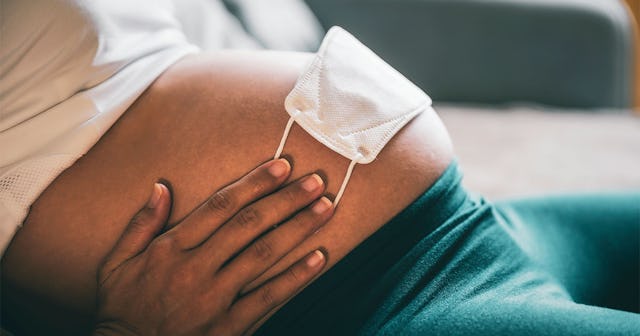Study Shows Pregnant People At 70% Higher Risk For COVID Infection

Pregnant individuals in the study were infected with COVID-19 at a 70% higher rate
A new study out of Washington state shows that those who are pregnant are at an elevated risk of contracting COVID-19. The pregnant women involved contracted the coronavirus at a 70 percent higher rate compared to similarly aged adults in the area.
The study, published in the American Journal of Obstetrics and Gynecology, showed that nonwhite pregnant people shoulder a disproportionate burden in contracting COVID-19.
Researcher Kristina Adams Waldorf from the University of Washington in the US said in a statement, “Our data indicates that pregnant people did not avoid the pandemic as we hoped that they would. The higher infection rates in pregnant patients, coupled with an elevated risk for severe illness and maternal mortality due to Covid-19, suggests that pregnancy should be considered a high-risk health condition for Covid-19 vaccine allocation in Phase 1B all across the US.”
The study’s research team involved 35 hospitals and health clinics to identify 240 pregnant individuals who contracted COVID-19 from March-June 2020. The team, led by researchers from the University of Washington in Seattle, analyzed data from the pregnant COVID-19 patients and captured 61% of the state’s annual births.
The study estimates that those who delivered 13.9 of every 1,000 newborns had COVID-19, compared with 7.3 of 1,000 state residents aged 20 to 39 years. After excluding 45 coronavirus cases detected through asymptomatic screening, the infection rate in pregnant women fell to 11.3 per 1,000 cases.
“Pregnant women were not protected from COVID-19 in the early months of the pandemic with the greatest burden of infections occurring in nearly all racial/ethnic minority groups,” the authors wrote. “This data coupled with a broader recognition that pregnancy is a risk factor for severe illness and maternal mortality strongly suggests that pregnant people should be broadly prioritized for COVID-19 vaccine allocation in the U.S. similar to some states.”
Lead researcher Waldorf also asked pregnant women to discuss the risks and benefits of Covid-19 vaccination with their prenatal care provider.
“We want to use information from this study to be more prepared for the next pandemic and to not brush pregnant women to the side. They need to have a seat at the table when it comes to vaccine trials and vaccine allocation,” she further stated.
The World Health Organization, the Centers for Disease Control and Prevention, the American College of Obstetricians and Gynecologists, and the Society for Maternal-Fetal Medicine have all agreed that pregnant women who have access to the COVID-19 vaccines should get it.
The study’s researchers say that the 70% higher rate in pregnant people may be due in part to exposures from children in daycare, their role as a caregiver within an extended family, residence in larger households, and other factors.
“Higher infection rates in pregnant patients may be due to the overrepresentation of women in many professions and industries considered essential during the COVID-19 pandemic — including healthcare, education, service sectors,” study author Erica Lokken, PhD, said.
Overall, the researchers are urging officials to get on board with targeted public health messaging.
“Understanding the geographical, racial/ethnic and language distribution of SARS-CoV-2 infections among pregnant patients would enable targeting the public health response to pregnant women at greatest risk for SARS-CoV-2 infection and associated adverse maternal-fetal outcomes.”
This article was originally published on